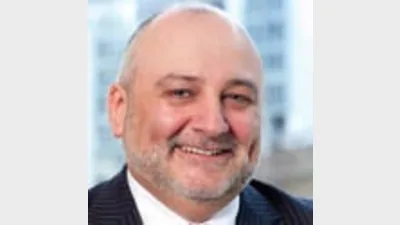CFP students more than double in 2011



The number of students in Certified Financial Planner (CFP)-aligned courses more than doubled in 2011 and the industry is now viewing graduate entrants more favourably, according to several experts.
The Financial Planning Association's (FPA's) head of professionalism Deen Sanders said that possibly the most significant development of 2011 was the April launch of the FPA Education Council. In just six months it had already done some serious work in developing a harmonised curriculum for Future of Financial Advice across all educational institutions, he said.
That model curriculum, which will be going out to universities for consultation from December until February, will help institutions develop their programs and become Certified Financial Planner (CFP)-approved institutions.
Sanders said students in CFP-aligned programs had increased from around 2,000 in the 2010 intake to around 5,000 in 2011, partly due to more institutions offering such courses.
AMP Horizons director Tim Steele said AMP would again be supporting its University Challenge in 2012. It is hoping to be able to start to embed the program in university courses to allow students to get academic credit for the work they undertake.
The industry is starting to think about education to the point where it is seen as a business enabler as opposed to a compliance requirement, Steele said.
"That's a critical paradigm shift, that they can look at education as a way of enhancing their offering to clients, the financial advice they offer clients, and supporting the growth of practices, as opposed to 'I need to complete this training to meet my licensing obligations'," he said.
Griffith University Associate Professor (Finance) and member of the Financial Planning Academics Forum, Dr Mark Brimble, said it was good that the educators were now working together with the industry to progress the agenda - rather than just talking about it.
The industry would increasingly be looking at degree-qualified entrants as the norm because it realised it was good for their businesses, he said. In the past the industry tended to recruit graduates without specialised training, then send them off to do an extra diploma to get specialised qualifications, but it is now turning that corner, Brimble said.
"The industry is realising the value of those students in terms of their ability to work as trainees from day one," he said.
Financial adviser and director at Synchron-aligned practice Wealth Enhancers, Finn Kelly, was a finalist in the young achiever category of Money Management's Fund Manager of the Year awards earlier this year, and was awarded the Association of Financial Advisers' excellence in education award at its national conference in November.
Despite being just 27 and having spent seven years as an army officer, Kelly has an undergraduate degree (a Bachelor of Science in maths and physics), a post-graduate degree and four diplomas, including a Diploma of Financial Services in financial planning. "I literally haven't stopped studying - whether it's formal or non-formal - I think that's the key, that ongoing education," he said.
Kelly said he was disappointed that he was able to earn the right to be a qualified financial adviser with little more than a month's hard work to achieve the diploma, leading him to continue to educate himself in other ways.
"What you get from a degree is almost what you apply with clients; everything we do is about setting goals and going on a journey - it's not a quick fix," he said.
Kelly said that if a qualification was a quick fix, it did not set a good example for clients. The amount of knowledge a financial planner needed regarding investments, and the soft skills involved in dealing with clients, could not all be taught in a short course, he said.
The gap between the older and younger generation also seemed to be closing, with both realising they had things they could learn from the other, Kelly said. The stereotype of the older financial advisers having the soft skills and younger generation being technical specialists also seemed to be disappearing.
Recommended for you
The central bank has released its decision on the official cash rate following its November monetary policy meeting.
Melbourne advice firm Hewison Private Wealth has marked four decades of service after making its start in 1985 as a “truly independent advice business” in a largely product-led market.
HLB Mann Judd Perth has announced its acquisition of a WA business advisory firm, growing its presence in the region, along with 10 appointments across the firm’s national network.
Unregistered managed investment scheme operator Chris Marco has been sentenced after being found guilty of 43 fraud charges, receiving the highest sentence imposed by an Australian court regarding an ASIC criminal investigation.











